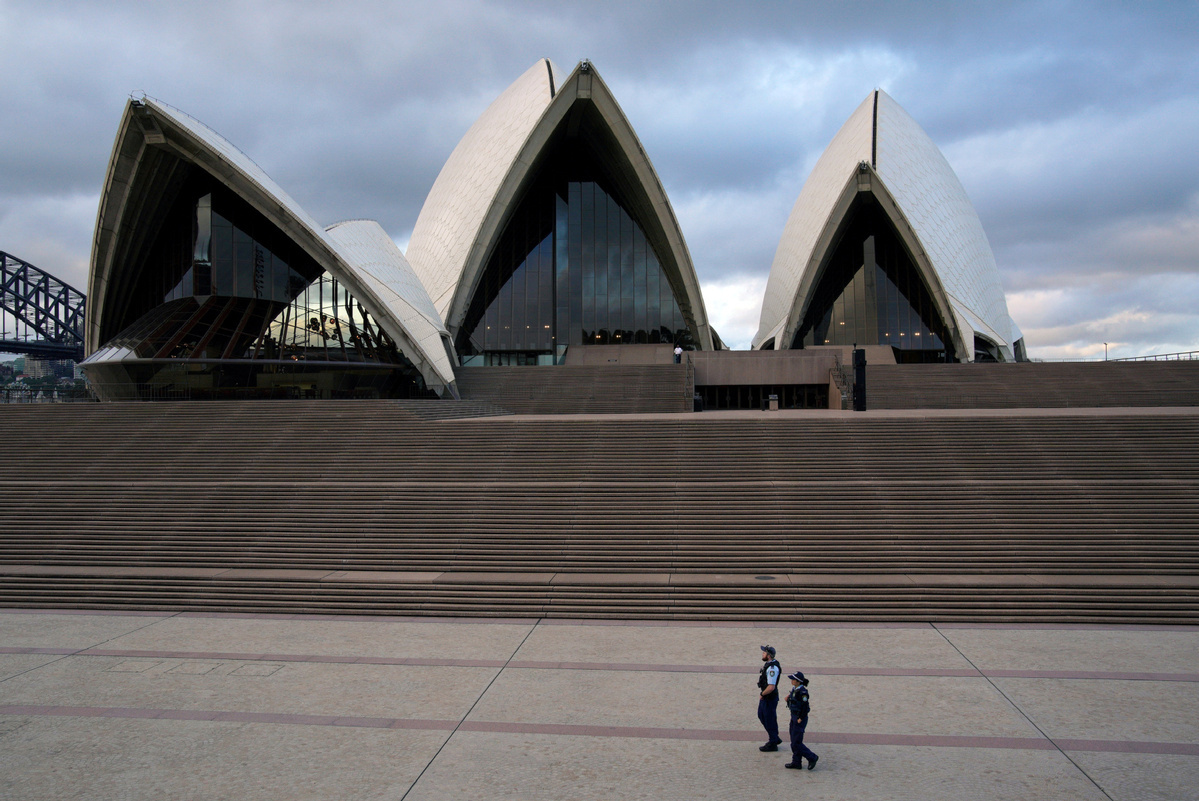
Police officers patrol near the Sydney Opera House following the implementation of stricter social-distancing and self-isolation rules to limit the spread of the coronavirus disease (COVID-19) in Sydney, Australia, April 6, 2020. (Photo: Agencies)
Australian Trade and Tourism Minister Simon Birmingham said on Monday that the idea that Australia is an unsafe destination for visitors from China is one that does not stand up to scrutiny.
In an interview with Australia Broadcasting Company's Radio National, he defended Australia's image as "the most successful multicultural and migrant society in the world". Yet his remarks were anything but convincing, and he admitted there had been racist incidents in the country.
There is no denying that anti-Chinese sentiment has been on the rise in Australia, and it has been whipped up further recently as some media outlets and politicians have sought to blame China for the novel coronavirus outbreak, which has resulted in Chinese in Australia being insulted, spat at and assaulted.
The ill wind against China and Chinese people in Australia is now the strongest it has been in a decade, which is why after China's Culture and Tourism Ministry issued an alert on Friday advising Chinese nationals not to travel to Australia, the Education Ministry warned on Tuesday that Chinese students should consider whether to continue studying in Australia.
By issuing the alerts, the Chinese government has adopted a responsible attitude as the rampant hostility and political bias against Chinese pose a threat to their safety.
That the travel warning will dampen Chinese tourists' enthusiasm for visiting Australia is certain, but Canberra only has itself to blame, because it has single-handedly poisoned the atmosphere for bilateral ties and people-to-people exchanges.
Canberra has not only obediently followed Washington's lead in trying to suppress China's telecommunications company Huawei but also enthusiastically joined it in accusing China of being the origin of the novel coronavirus and enabling the pathogen to spread.
Yet the US embassy in Canberra was forced to clarify that the US State Department document that was used by some Australian newspapers to link COVID-19 to a laboratory in Wuhan was what is known in diplomatic circles as a "non-paper", a document with non-official status that in this case was intended to provide guidance for foreign governments on Washington's blame strategy targeting China.
Nonetheless, as is usual in such cases some of the mud thrown by the media stuck to those susceptible to such racially charged claims, and consequently Australia has experienced a spike in discrimination and racial abuse toward Chinese.
Under such circumstances, it is only natural that Chinese tourists' willingness to go to Australia will weaken and Chinese students may reconsider whether studying in the country is a good idea.
Given Australia's habitual practice of passing the buck to China each time China-Australia ties encounter difficulties, such an undesirable picture may be just the beginning unless Canberra changes course and joins hands with Beijing to improve ties.


